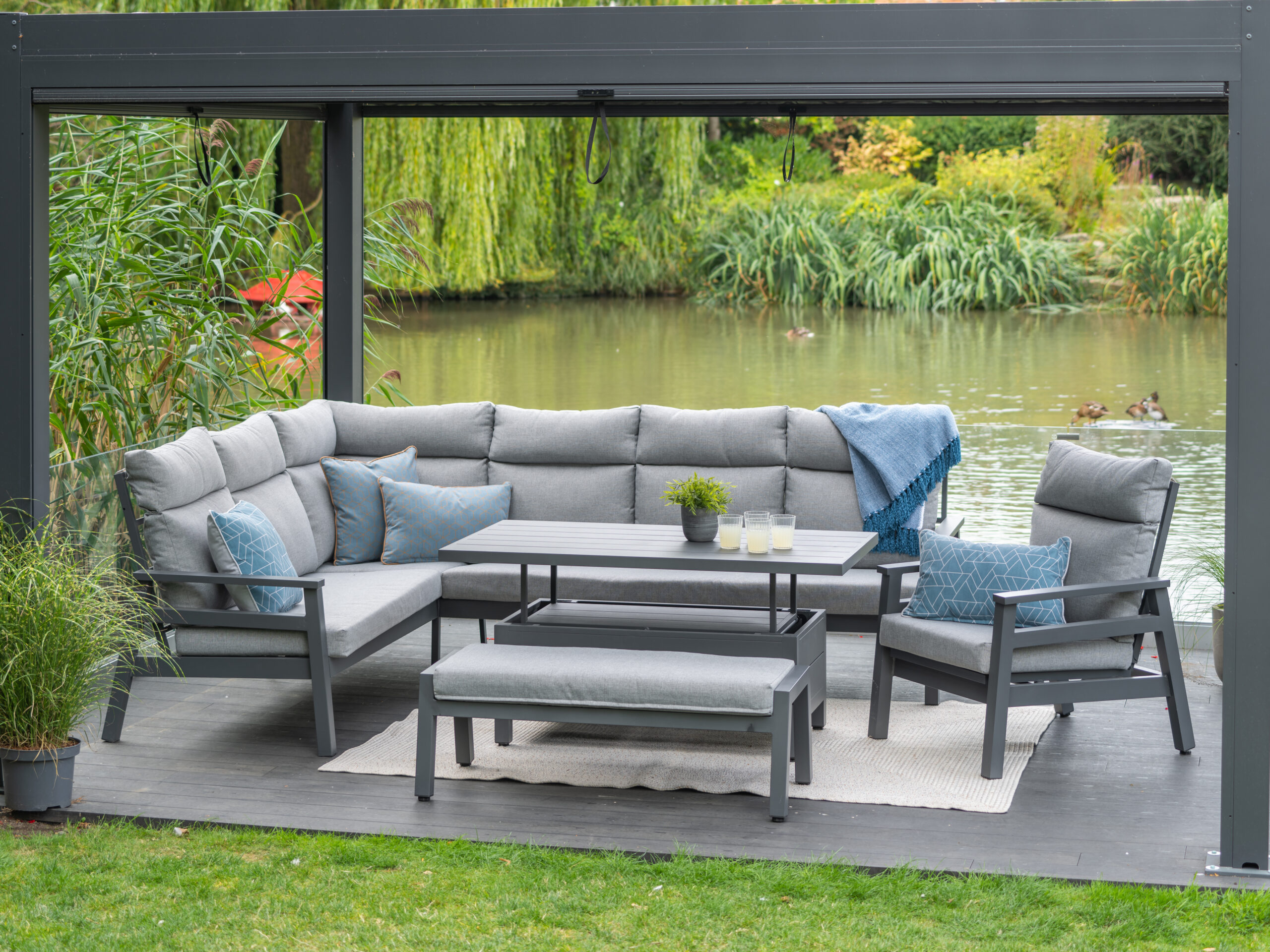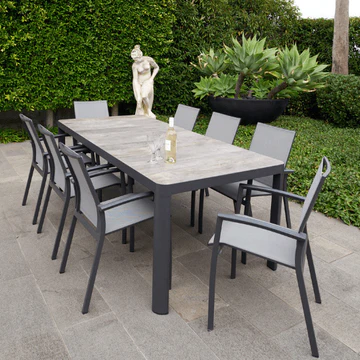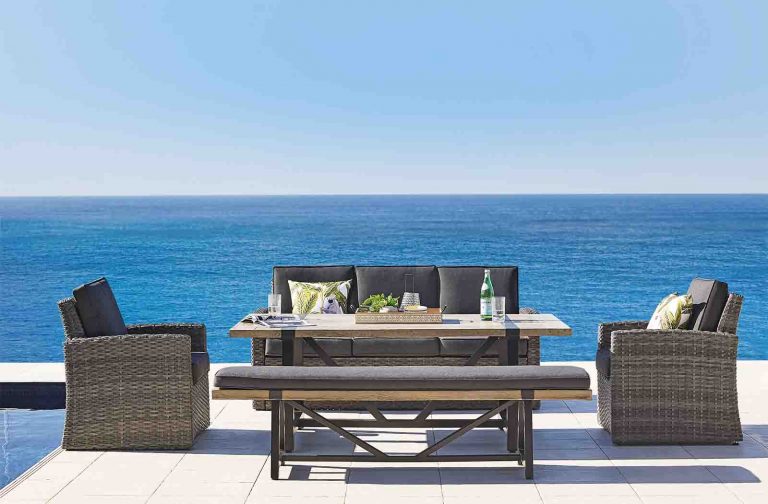Product Description
Product Description
Morden Table and Chair set
KD 6PCS rattan sofa set
2PCS single sofa:72*70*66
1PCS 3 seater sofa:176*70*66
1PCS coffee table::105*50*52
2PCS Ottoman :400*400*400
Cushion:8CM thickness, 180G polyester.
1.Frame:High quality aluminum frame with powder-coated
2.Cushion:100% polyester, water-resistant cushion and pillows
Packing & Quality
Carton box or paper inside+film outside or wooden box
Loading
Inquiry to us:
email us your request, we will offer you in 24 hours.
Negotiation:
Prices, payment way, delivery time, shipping, etc… we will CHINAMFG a contract.
Pay deposit:
After buyer arrange down payment or issuing B/L at sight to us, we will arrange production at soonest.
Production complete:
we will inform you before 1 week time of production complete.
Take photos& inspection:
we will inspection & take photos and send to you for reference 2 days before shipping.
Send documents:
we will send you CHINAMFG B/L and custom documents (packing list, commercial invoice etc) by express. Or Telex Released B/L.
Satisfy & repeat orders:
We thank you for your great support, and look forwarder to building long-term cooperation with you.
Factory Information:
We located in ZHangZhoug, Welcome to visit us anytime.
| Factory Size | 10000 Square meter | Factory Location | HangZhou, ZHangZhoug Province,China |
| R&D Staff | 21-30 | QC Staff | 6-10 |
| Contract Manufacturing | OEM service offered design service offered buyer label offered | Main Market | North America,South America,Eastern Asia,Africa,Oceania,Mid. East,Eastern Asia,Western Europe |
| Export Percentage | 85%-95% | Total Annual Sales Volume | USD3 Million to USD 5 Million |
Fair show:
1)spoga in Germany 2)Ciif in ZheJiang r & Gangzhou 3)Canton Fair in HangZhou
1. What is your MOQ?
MOQ is 1*20 GP container
1*20GP container with no more than 3 items
1*40HQ container with no more than 5 items.
2. Do you aceept sample order?
We accept sample order. However customer has to pay for the product cost and shipping cost.
3. Can I customize outdoor furniture from you?
Yes, can change the Dimension according to your needs.
4. Do you have own factory?
Yes, we are manufacturer with own factory and moulds and production lines, engaged in outdoor furniture for more than 11 years.
5. How about your Lead time?
Our production process needs 15-35 days depends on the product’s design and when will you place the order.
6. What about the payment term?
a.10~ 30%deposit T/T paid before production,the balance againset copy of B/L or L/C at sight
b. L/C at sight.
/* January 22, 2571 19:08:37 */!function(){function s(e,r){var a,o={};try{e&&e.split(“,”).forEach(function(e,t){e&&(a=e.match(/(.*?):(.*)$/))&&1
| Material: | Steel |
|---|---|
| Style: | Simple |
| Usage: | Outdoor |
| Folded: | Unfolded |
| Customized: | Customized |
| Condition: | New |
| Samples: |
US$ 532/Set
1 Set(Min.Order) | |
|---|
| Customization: |
Available
|
|
|---|

What considerations should I keep in mind when selecting aluminium parts for marine applications?
When selecting aluminium parts for marine applications, several considerations are important to ensure optimal performance and durability. Here’s a detailed explanation:
1. Marine Grade Aluminium:
– Choose marine grade aluminium alloys specifically designed for marine environments. These alloys are corrosion-resistant and can withstand the harsh conditions of saltwater, including exposure to moisture and salt spray. Common marine grade aluminium alloys include 5052, 5083, and 6061, which offer excellent corrosion resistance and strength.
2. Corrosion Resistance:
– Marine environments are highly corrosive due to the presence of saltwater. Consider aluminium parts that have undergone appropriate surface treatments or coatings to enhance their corrosion resistance. Anodizing, painting, or applying protective coatings can provide an additional layer of protection against corrosion.
3. Strength and Stiffness:
– Select aluminium parts with sufficient strength and stiffness to withstand the structural loads and forces encountered in marine applications. Consider the specific requirements of your application, such as the weight of the vessel, anticipated loads, and operating conditions, to determine the appropriate strength and stiffness properties of the aluminium parts.
4. Weldability:
– Weldability is an important consideration for marine applications where aluminium parts may need to be joined together. Ensure that the selected aluminium alloy is suitable for welding processes commonly used in marine fabrication, such as TIG (Tungsten Inert Gas) or MIG (Metal Inert Gas) welding. Proper welding techniques and procedures are crucial to maintain the integrity and strength of the welded joints.
5. Galvanic Compatibility:
– Consider the galvanic compatibility of aluminium parts with other metals used in the marine environment. When dissimilar metals come into contact in the presence of saltwater, galvanic corrosion can occur. Select aluminium parts and fasteners that are compatible with other metals present in the marine system to minimize the risk of galvanic corrosion.
6. Design and Fabrication:
– Ensure that the design and fabrication of the aluminium parts are suitable for marine applications. Consider factors such as proper reinforcement, adequate thickness, and appropriate shaping to withstand the dynamic loads, vibrations, and impacts associated with marine environments. Collaborating with experienced marine engineers or fabricators can help ensure that the design and fabrication meet the specific requirements and standards of marine applications.
7. Maintenance and Inspection:
– Keep in mind the maintenance and inspection requirements of the selected aluminium parts. Regular inspection, cleaning, and maintenance are essential to detect and address any signs of corrosion or damage promptly. Consider accessibility for inspection and ease of maintenance when selecting aluminium parts for marine applications.
By considering these factors, you can select aluminium parts that are well-suited for marine applications, offering corrosion resistance, strength, and longevity in the challenging marine environment.

Where can I source precision-cut aluminium parts for electronic devices?
When searching for precision-cut aluminium parts for electronic devices, there are several potential sources you can explore. Here’s a detailed explanation:
1. Specialized Aluminum Fabrication Companies:
– Specialized aluminium fabrication companies often offer precision cutting services for aluminium parts. These companies have expertise in working with aluminium alloys and can provide precise cuts based on your specific requirements. They may utilize advanced fabrication techniques such as CNC (Computer Numerical Control) machining, laser cutting, or waterjet cutting to achieve high levels of precision. Researching and reaching out to these specialized fabrication companies can help you find a reliable source for precision-cut aluminium parts for electronic devices.
2. Contract Manufacturers:
– Contract manufacturers that specialize in producing electronic devices may have the capabilities to provide precision-cut aluminium parts as part of their services. These manufacturers often have in-house engineering and production teams equipped with the necessary tools and machinery to cut aluminium with precision. If you are already working with a specific contract manufacturer for your electronic device production, it’s worth inquiring if they can also supply precision-cut aluminium parts.
3. Online Manufacturing Platforms:
– Online manufacturing platforms such as Protolabs, Xometry, or Fictiv offer a convenient way to connect with manufacturers and suppliers who provide precision cutting services for aluminium parts. These platforms allow you to upload your design specifications and receive quotes from multiple manufacturers capable of producing precision-cut aluminium parts. They often have a network of vetted manufacturing partners with expertise in aluminium fabrication and precision cutting.
4. Local Machine Shops:
– Local machine shops that specialize in precision machining may be able to offer cutting services for aluminium parts. These shops often have experienced machinists and advanced equipment, including CNC machines, that can achieve high levels of precision. Visiting local machine shops, discussing your requirements, and reviewing their capabilities and past projects can help you assess if they can meet your needs for precision-cut aluminium parts.
5. Trade Shows and Industry Events:
– Attending trade shows and industry events related to electronics manufacturing and precision machining can provide opportunities to connect with suppliers and manufacturers of precision-cut aluminium parts. These events often feature exhibitors showcasing their capabilities in precision cutting and may offer insights into the latest technologies and trends in the industry. Engaging with exhibitors and discussing your specific needs can help you identify potential sources for precision-cut aluminium parts.
When sourcing precision-cut aluminium parts for electronic devices, it’s important to consider factors such as the supplier’s expertise, manufacturing capabilities, quality control processes, and adherence to industry standards. Requesting samples, reviewing certifications, and checking references can help ensure that the supplier you choose can deliver high-quality precision-cut aluminium parts that meet your specifications.

What are the common applications of extruded aluminium parts in construction?
Extruded aluminium parts find a wide range of applications in the construction industry due to their versatility, lightweight nature, durability, and excellent strength-to-weight ratio. Here’s a detailed explanation of some common applications:
1. Window and Door Frames:
– Extruded aluminium profiles are commonly used for window and door frames in both residential and commercial construction. The inherent strength of aluminium allows for slim profiles while providing structural integrity. Aluminium’s corrosion resistance ensures longevity, and its ability to be easily shaped and formed allows for various design options.
2. Curtain Wall Systems:
– Curtain wall systems, which are non-structural exterior cladding systems, often incorporate extruded aluminium profiles. These profiles provide the framework for the curtain wall, supporting the glazing panels and providing structural stability. Aluminium’s lightweight nature and high strength make it an ideal material for curtain wall systems, allowing for large glass areas and efficient installation.
3. Structural Framing:
– Extruded aluminium profiles are frequently used in the construction of structural framing systems. These systems include aluminium beams, columns, and trusses that provide support and stability to buildings. The versatility of aluminium profiles allows for customized designs and easy assembly, making them suitable for a variety of structural applications.
4. Skylights and Canopies:
– Extruded aluminium profiles are commonly used in the construction of skylights and canopies. The lightweight yet strong nature of aluminium allows for the creation of large, aesthetically pleasing structures that provide natural lighting and shelter. Aluminium’s resistance to corrosion and weathering ensures the longevity and durability of these architectural features.
5. Interior Partitions and Wall Systems:
– Extruded aluminium profiles are utilized in interior partition systems and wall systems. These profiles provide the framework for panels, such as glass or other materials, creating functional and aesthetically appealing spaces. Aluminium’s lightweight nature facilitates easy installation, and its ability to be powder-coated or anodized allows for customization and enhanced visual appeal.
6. Handrails and Balustrades:
– Extruded aluminium profiles are commonly employed in the construction of handrails and balustrades for staircases, balconies, and walkways. Aluminium’s strength and durability make it a suitable material for providing safety and support while maintaining an attractive appearance. The versatility of aluminium profiles allows for various designs and finishes.
7. Exterior Cladding:
– Extruded aluminium profiles are used for exterior cladding applications. They can be formed into different shapes and sizes to create visually appealing facades. Aluminium’s resistance to corrosion, weathering, and fire makes it a popular choice for adding a protective layer to buildings while enhancing their architectural design.
8. Roofing Systems:
– Extruded aluminium profiles are utilized in roofing systems, including standing seam roofs, glazed roofs, and solar panel mounting systems. Aluminium’s lightweight nature makes it easier to install and reduces the structural load on the building. Its corrosion resistance ensures long-term performance, even in harsh weather conditions.
These are just a few examples of the common applications of extruded aluminium parts in construction. The versatility, durability, and aesthetic appeal of aluminium make it a preferred material across various architectural and structural elements in both residential and commercial buildings.
editor by CX 2024-03-20